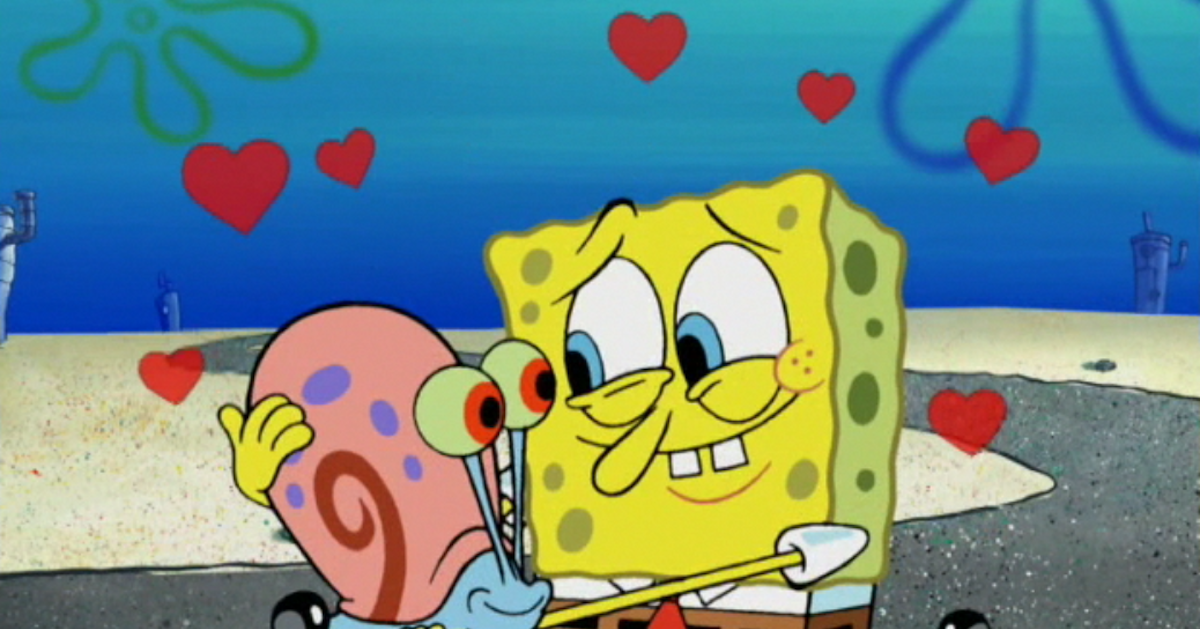These Foreign Phrases Have No English Equivalent... But They Should
Updated June 27 2019, 4:45 p.m. ET

The English language has the most words of any spoken on Earth, but that doesn't mean it doesn't have limitations. People who speak English as a second language often find certain words or phrases in their native tongues don't have a direct equivalent in their adopted one. In a recent thread on Ask Reddit, people shared their favorite expressions that have no easy English translation — but after learning about them, we feel pretty adamant that they should.
1. Danish: "bjørnetjeneste"

The literal translation of this Danish word is "the bear's favor," and according to reachling, it means "to do something with good intentions [with] horrible consequences." The origin comes from a fable about a tame bear and its owner. The bear notices a bee flying by his owner's face and tries to swat it away for the man, but in the process mauls his face.
Boy, is that a poignant fable and also a really useful word! I think we've all been guilty of committing a bjørnetjeneste.
2. Finnish: "Kalsarikännit"
Apparently the country of Finland is full of introverts who like to get a buzz on, because they have a single word for "drinking by yourself at your house in your underwear with no intention of going out," according to Urban Dictionary. Reddit user thisgirlhasissues says it's a compound of two words. "Kalsarit = underpants, or long johns, kännit = being drunk; getting wasted." In other words, "Hey, do you want to meet me at the bar later?" "Nah, I'm gonna kalsarikännit tonight."
3. Swedish: "Fika"

Google Translate will tell you "fika" means coffee, but that's not a very good interpretation. It means to take a break for a coffee and a snack, but it has a deeper meaning in Swedish culture. It's a social activity, a way to break up the workaday with a time to catch up with a friend or coworker so you can go back to work refreshed and maintain good relationships with colleagues. More American companies should fika!
4. Omani Arabic: "تعايتبك" (taayeetbak)
According to Google Translate, this word means "controversy," but it seems a lot is lost in translation. A redditor named 3adi says in Oman this Arabic word is used to communicate, "Your actions / what you said lead me to be confused on your intention." In other words, "you're giving me mixed signals" or "your mouth is saying one thing and your actions are saying another."
5. Yiddish: "machatunim"

This Yiddish word refers to the in-laws of one's children, and there's no easy way to say that in English. Spanish also has a word for this: consuegros. Perhaps the lack of an equivalent English word is because it's less common for English speakers to hang with their machatunim with enough regularity to need an easy shorthand for this familial relationship. Come to think of it, English seems to lack a lot of the specific family shorthand other languages have, like words to specify whether a relative if from your maternal or paternal lineage.
6. Swedish: "lagom"
You know how in Goldilocks and the Three Bears, the protagonist of the story (or antagonist if you're a bear or bear sympathist) likes things to exist in a that middle-ground known as "just right"? In English, there's not really an efficient way to say "not too big, not too small" or "not too cold, not too hot." But in Swedish, the word for that is "lagom," which directly translates as "moderate" but it would make you sound like an awkward robot if you requested a "moderate helping of spaghetti" at the dinner table.
7. Danish: "hygge"

Pronounced "hoo-ga," the closest English translation of this word is "coziness," but Danes say that's not really sufficient to describe what they're talking about when they use this word. Basically it refers to a cozy, content feeling, particularly like one might get from lounging around by a fire with a big mug of cocoa and blanket while a winter storm rages on outside.
8. Hungarian: "jófej"
If you type jófej into Google Translate, it spits back, "nice," which I guess technically is right, but the Hungarian term is far more specific than "nice," which is sort of a catch-all word that doesn't really carry a lot of meaning. "Jófej" is a quality describing someone whose company you enjoy because they're funny and kind, according to azuredolphin888. As another commenter added, "cool" is probably a better English word for this, but it sounds like it doesn't quite cover it.
9. Tagalog: "kilig"

You know that feeling you get when you spend time with someone you're really into romantically? That fluttery, twitterpated feeling of romantic excitement? In Filipino AKA Tagalog, that word is "kilig" according to mprincekane. It's basically the heart-eyes emoji in word form.
10. Serbian: "promaja"
This word refers to what we in English would call a draft, but according to NoxtProduction, it seems a bit more specific. It refers to the phenomenon that occurs when you have "a bunch of windows and doors open, which causes them to slam shut or the window curtains to fly out."
11. French: "frileux"

Everyone knows someone who's "frileux" but there's no efficient word to convey it! This word translates to "chilly," but according to ZineKitten, it doesn't mean someone with a cold personality or someone who is incidentally cold. Rather it means someone who always runs a bit cold. They're the person in your office who is always wearing a sweater and a blanket because the air conditioning is "freezing," and will want a light cardigan even in the summer. If that description fits, in France you can just say "Je suis frileux."
12. Spanish: "tampoco"
The Spanish word for "neither" is also a more succinct way to say "I don't have any of those either." An example offered by patechucho explains the facility of this word. "For example, you ask "Do you have apples?" Other person replies, "No." You ask, "How about oranges?" In Spanish you can say "tampoco" and that's it. In English you have to say, "I don't have oranges either" to convey the exact meaning.
13. Norwegian: "dugnad"

Redditor aronievik explains this word as meaning "when a bunch of people get together and do some sort of work, for no other reason than wanting to help. Often it will be at your kid's school, or if someone you know has a big project they're doing, like building a house or whatever." So basically if all your friends come over to help you move to a new apartment, that's "dugnad," and you should buy them some pizza and beer to say, "takk!"
14. Greek: "φιλότιμο" (philotimo)
This modern Greek work is used to describe "someone who's honorable and hard-working and kind, often expecting no reward for his help yet going above and beyond what's expected of him," says I_hate_traveling. Though the word "altruistic" comes closest to matching it in English, they say it doesn't capture the same hardworking quality this word also encompasses.